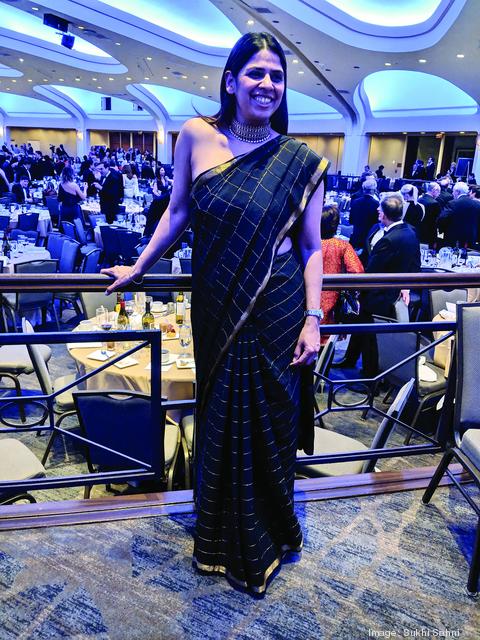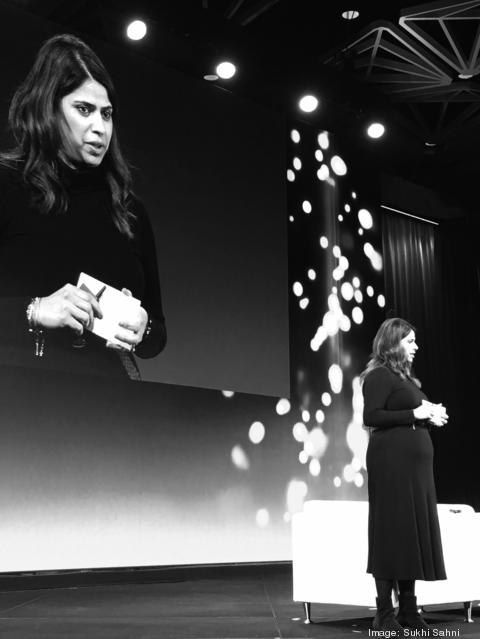
This article originally appeared on Washington Business Journal.
December 1999 is when I first arrived in the United States. Nervous, yet excited. Tired from a very long journey from my hometown Delhi to my current home in D.C. Leaving family and friends behind in the pursuit of higher education, new experiences and my freedom.
I can still feel the crisp, cold air from that afternoon and walking through the long immigration line. I’ve walked through those gates many times since then and most recently as a naturalized American citizen. In the last 20 years, I’ve accomplished quite a bit. Graduated with a master’s degree; met the love of my life; am a mother to two strong, resilient and beautiful young girls; had continuous success in my professional journey as a communications expert and, most importantly, made my parents proud.
It’s interesting that most folks from India are always looking for ways to make their parents proud. It is part of who we are, our culture and our upbringing. My parents not only pushed me to always bring my best but also instilled the value of hard work from an early age. My father who passed away a few weeks before my graduation in 2004 always said, “Beta (dear daughter), there is no excuse for hard work. First deserve, then desire.”
While I was lucky to always be in the right place at the right time and had the support and mentorship of many wise and kind people, my journey wasn’t always easy. Just like many others with similar backgrounds, I’ve had my shares of ups and downs. Every experience is reflective of the person I am today.

Lesson No. 1: Being brown is advantageous: During my early years at West Virginia University, I was probably the only brown international student in the journalism school. Most international students were either in engineering or medicine. I had my share of stares, subtle hallway remarks and always being a solo contributor in a group project because no one wanted to work with the Indian girl.
Once a fellow student asked, “How do you speak such good English? Aren’t you from India?” Little did they know that English is a common language in India, and many English-speaking international students are now running top global companies in the world. In that moment, instead of getting upset, I chose to sit down with the student to share more context. Even today, when I see confused reactions about brown people, I educate versus getting frustrated or reacting negatively.
Lesson No. 2: Learn to pivot, adapt and flex: It is surprisingly difficult for legal immigrants to pursue their American dream. My journey is also reflective of some of these challenges. There was pain and heartache, too. I always dreamt to be the next Christiane Amanpour and spend my life reporting stories from the front lines. However, I knew getting a visa sponsorship for this job was tough. As such, I quickly pivoted to specialize in public relations, and that led me to a very fulfilling career. My journalistic instincts are still alive and writing this piece is my way of keeping that dream alive.
Lesson No. 3: Find your allies, different than yourself: In the last 20 years, I have put a lot of time and effort into building new and deepening existing relationships. It was easy to find someone who looked, behaved and sounded just like myself. However, I quickly realized that I was not learning much because we were all so alike. It became clear that in order for me to grow, I could not see everyone through a similar lens but surround myself with people who thought differently and could provide a different perspective.
Whether it was my friends in West Virginia, or Asia, or the neighborhood chef from Guatemala — they all shared experiences and perspectives that were different than mine. This made me more aware, forced me to think differently and has become a true differentiator in what I bring to the table.

Lesson No. 4: Correct them when wrong: “Sukhi, is that Japanese? Is it Suhki or Suki? Doesn’t sound Indian. What does it mean?” What’s in a name? Well, everything. Because when you acknowledge my name, you acknowledge my existence. It is the first form of introduction, it’s part of who you are, and it is your identity. And if you have a “foreign-sounding” name, you are probably very familiar with people mispronouncing or spelling it wrong.
Not sure many people know, my full name is Sukhjeet Sahni but I have always gone with Sukhi Sahni. It’s shorter, has a ring to it and I thought it was easier to pronounce and spell. But I was wrong. At one point, I had made peace with the fact that people will always spell or mispronounce it. What bothered me even more was that many didn’t even ask or check in with me and just assumed. That is when I decided to be direct and correct them. Because if I didn’t correct them, who will and how will they learn? Being a minority, from a different background, culture and race often comes with the responsibility of educating others when you can. I realized very young that you cannot fight ignorance with arrogance, but with awareness and education.
Lesson No. 5: A global mindset sets you apart: It pushes you to learn from experiences different from yours, to understand other people and their history and culture. My background, my culture and my heritage are a big part of who I am, and I proudly wear it on my sleeves. Whether it’s wearing a sari at the White House Correspondents’ Association dinner last year or educating my colleagues about the significance of Diwali, I believe that we can only become more inclusive if we take the time and effort to learn but also impart the knowledge we have.
As I look back at my journey, I am eternally grateful for all the experiences — the good, the bad, the ugly. If not for them, I wouldn’t have been where I am today. While sometimes the path may seem tough with no end in sight, always believe there will be greater knowledge and understanding at the end of the tunnel.

